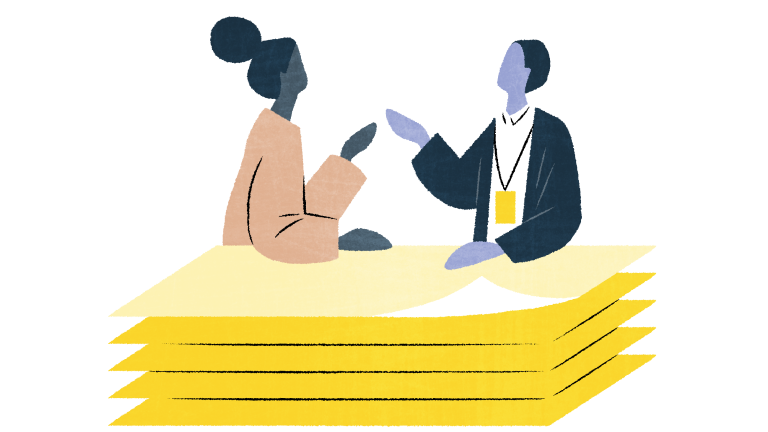We advise you to prepare for the interview in advance. Get to know different formats and practices regarding job interviews. You can also practice your answers to some typical interview questions.

We advise you to prepare for the interview in advance. Get to know different formats and practices regarding job interviews. You can also practice your answers to some typical interview questions.

The suitability of an applicant for the applied job and the organisation is assessed in different ways during the recruitment process. The most common way is through job interviews or personal assessments. The job interview is intended to determine the suitability of the applicant for the job and the organisation, but it also gives the applicant the opportunity to determine the suitability of the job for themselves.
The interview allows you, as an applicant, to tell the employer more about yourself and your skills, and to get to know the position and the organisation you are applying for in more detail. The employer will get to know you better and assess your suitability for the position and the organisational culture.
The interview is therefore ideally a two-way discussion, with the aim of gaining more information to support both parties in their decision-making. During the interview, you should be yourself and communicate your skills and your interest in the job. You will also be given the opportunity to ask any questions you may have about the position you are applying for.
The recruitment process may involve one or several rounds of interviews, which may take different forms. You may meet different interviewers at different stages depending on the type of recruitment process. The interviewers may be representatives of employers, but they may also be consultants from personnel service companies or recruitment agencies.
Several people may take part in interviewing applicants. The interview may involve a future supervisor, a human resources representative or recruiter, an external recruitment consultant, a future colleague or other key person in the organisation.
There are many styles of interviews, and the content may vary. Some interviews may be very formal, while others may be more like a friendly chat. It is not always possible to know in advance what kind of interview you will have. However, interviews typically follow the same structure and cover the same topics. Interviews usually start with introductions and a discussion about the recruitment process and how it will proceed.
An introduction to the position in question
An introduction to the employer organisation or team
The applicant's skills, experience and education
The applicant's motivation and interests
The applicant's expectations in relation to the position
The applicant’s career aspirations and goals
The applicant's strengths and areas for improvement
The applicant's way of working in different situations
The applicant's language skills or other specific skills
Other relevant factors and practical matters
There is often room for open discussion during the interview, or at least for the applicant to ask their own questions. The degree of openness and freedom depends on the nature of the interview. On-site interviews may involve a tour of the organisation and premises with the applicant.
At the interview, copies of the applicant's work and educational certificates and references may be requested. Sometimes the interview includes a case study or simulation related to the applied position, or a review of the applicant’s pre-assignment. During a job interview, the steps of the recruitment process are also often covered, and what might be expected of the applicant after the interview.